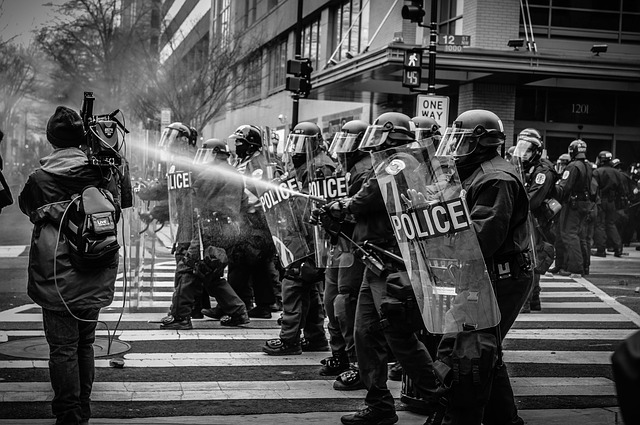
- admin
- September 15, 2020
- 8:06 pm
- No Comments
Understanding The Difference Between Policing And Law Enforcement
A layman understanding state laws can mislead you to think that policing is the same as law enforcement. This is, in fact, a common misconception. Be it the Suffolk County Police in Long Island or the NYS Court Officer, they’re thought of as the same.
If you’re a law-abiding citizen, your only encounter with the police would be parking or speeding tickets. The understanding here is that since the cops are enforcing the laws of the city traffic on you, they’re the law enforcement agents. But when you consult with criminology practitioners, you realize how different the two institutions are.
The Concept Of Law Enforcement
One of the most resounding distinctions between them is that law enforcement agencies follow the law to the letter. They’re not concerned with the spirit of the law, and only avow an unconditional adherence to the content of the law. They have no regard for the intention behind a specific clause in the constitution or which context it may apply to. They hold the law as the Gospel truth and follow it without any ifs and buts.
This is the only way that law and order can be maintained in an area. To keep public crimes at bay, they enforce the law and expect obedience in return. In case any person offends the law of the state, they’re charged according to their crime and its corresponding legal punishment.
Theories And Types Of Punishment
There are four theories of legal penalties that the offender will have to pay:
- Retribution
- Deterrence
- Rehabilitation
- Incapacitation
In light of these theories, there are several types of physical punishments designed for criminal offenders. Imprisonment, banishment, sanctions, or the ultimate death penalty are common categories of legal sentences conferred on offenders.
 The Concept Of Policing
The Concept Of Policing
Now that we’ve laid the foundation of law enforcement let’s look at how policing is different. The misunderstanding stems from the idea that both institutions have to deal with the law, but policing is more about the implementation of laws and fighting crimes on the ground. Adhering to the letter of the law is not applicable in this scenario. They need a more holistic approach to deal with offenders and work for the rehabilitation of the community. Invoking the law when and where needed is at the discretion of police officials.
 Since the police are responsible for crime control, peacekeeping, and law enforcement, it becomes hard to discern between law enforcement institutions and the police force. The simplest way to understand this difference is by appreciating that policing involves adapting the maxims of law to the case at hand while cooperating with the parties without bending the law. The primary goal is not to uphold the sanctity of the law—as is the case with law enforcement—but to improve the quality of life for the average citizen.
Since the police are responsible for crime control, peacekeeping, and law enforcement, it becomes hard to discern between law enforcement institutions and the police force. The simplest way to understand this difference is by appreciating that policing involves adapting the maxims of law to the case at hand while cooperating with the parties without bending the law. The primary goal is not to uphold the sanctity of the law—as is the case with law enforcement—but to improve the quality of life for the average citizen.
Nine Principles Of Policing
The best articulation of this concept is found in Sir Robert Peel’s nine principles of policing. There’s still some confusion about whether Sir Peel himself enunciated all the points mentioned in this document. Some evidence suggests that a few of the nine points were initially formulated by two commissioners of London’s Metropolitan Police Department in 1829.
Here are the nine principles of policing:
PRINCIPLE 1: The police force exists to prevent crimes from escalating and disorder from settling in the state.
PRINCIPLE 2: The performance of police officials depends on the cooperation and approval of the public.
PRINCIPLE 3: Retaining the respect of the public they’re serving is crucial for policing. Laws must not be enforced, instead observed with willing cooperation.
PRINCIPLE 4: Use of physical force will consequently diminish the trust and respect that the public places in the police force. It may compromise their relationship and reduce cooperation from the masses.
PRINCIPLE 5: The police force can only attain public favor by demonstrating impartial allegiance to serving the law, rather than exercising power vested in their uniforms.
PRINCIPLE 6: Police officials must only resort to using force when all attempts at persuasion, advice, and warnings have failed. The intent must be to secure observance of the law and restoration of peace.
PRINCIPLE 7: The police are the public, and the public is the police. This is the driving principle behind the police institution and the foundation of their relationship with the masses. Their performance must reflect goodwill and service to the public. The officials are selected members of the community who get money to uphold communal welfare and duties that are incumbent on every citizen.
PRINCIPLE 8: Police should understand that their place is secondary to the judiciary and should only direct their actions toward their functions.
PRINCIPLE 9: The ultimate test of policing is to invoke obedience to the law and instill a responsibility toward uplifting the law and order situation. A significant fall in crime rates and no visual evidence of police force being used to enforce the law is the real success of policing.
Why Does The Difference Matter
In the recent past, a gulf has emerged between the police and the general public. This has created an atmosphere of negativity and antagonism while defeating the purpose of policing. Without public support, policing is ineffective and redundant. It’s an institution made from the public, for the public, and extend services to the public. But an enforcement-only approach can divorce the institution from the needs of the society.
 This is why we must understand the differences between the police force and law enforcement agencies. Law enforcement is the more stringent institution that believes in the word of the law, and for them, it’s set in stone. It denies any form of flexibility to suit your purpose.
This is why we must understand the differences between the police force and law enforcement agencies. Law enforcement is the more stringent institution that believes in the word of the law, and for them, it’s set in stone. It denies any form of flexibility to suit your purpose.
In contrast, policing should and must entertain public opinion and create a healthy engagement with the local community. It’s not in place to dictate the law to the masses; it’s there to assist and offer their services to those who are wronged and wish to seek justice.
If you plan to join the police force or work for law enforcement agencies, you need to get your facts straight. Only after you’ve made up your mind should you enter the rigorous hiring process.
There can be many bureaucratic impediments in the recruitment process that can make the task daunting and exhausting. We help applicants train for these challenges with grace, as it is the beginning of their civil service work. We offer courses that help applicants through the application process and succeed in their exams.
If you’re wondering about personal benefits that come with the job, civil servants in the NYC sanitation sector receive an annual pay starting with $47,371, and the Suffolk court officers get $54,131. This is a once in a lifetime opportunity; seize it!
We provide complete exam guidance, make up classes, and exam workshops to best prepare candidates for the exam. Our sessions start in June, so if you want to sign up for our classes, save the date.
Call us at 631-218-0889 or email customerservice@civilservicesuccess.com For details.

